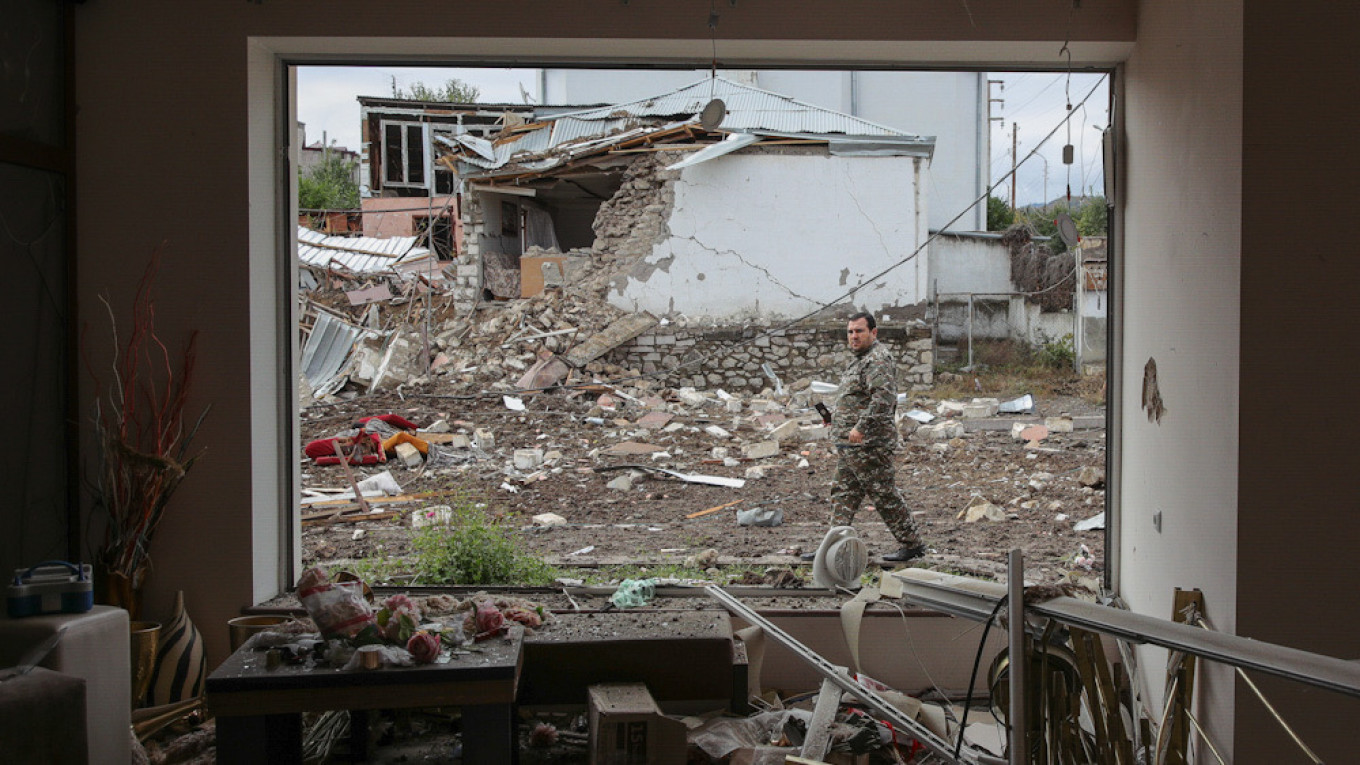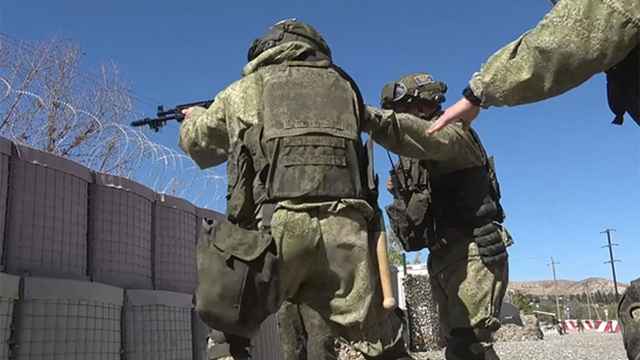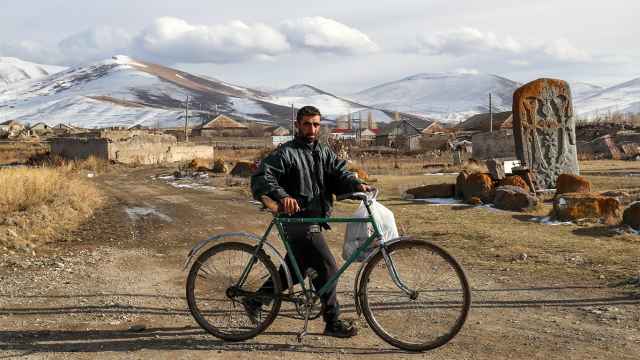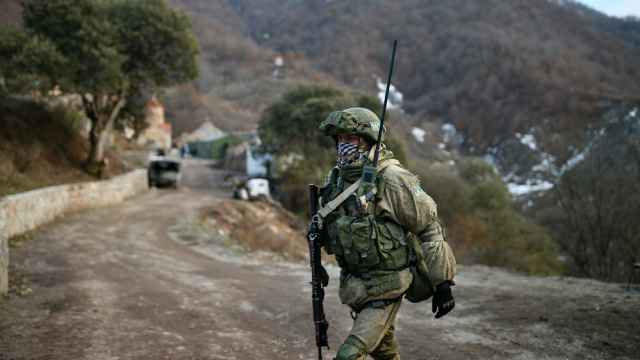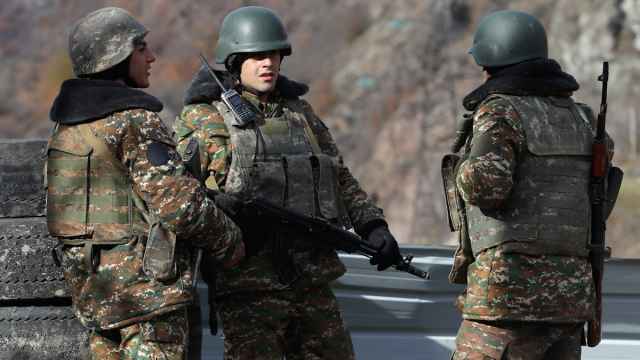Armenia lifted martial law on Wednesday, five months after the end of its brutal war with Azerbaijan over the Nagorno-Karabakh region.
The decision to lift the order came as part of a deal between Prime Minister Nikol Pashinyan and the opposition to defuse a political crisis sparked by Armenia's crushing defeat in the six-week conflict.
Pashinyan's critics have staged regular protests calling on him to resign for his handling of the war since November when he agreed a ceasefire and ceded swathes of territory to Azerbaijan.
Armenian law says a sitting prime minister cannot be removed during martial law and the move to lift it came after Pashinyan agreed with the opposition to hold fresh parliamentary elections in June to end the protests.
Parliament, which is controlled by Pashinyan's allies voted Wednesday 118 to 1 with one abstention to lift martial law, which was declared Sept. 27, the day clashes erupted in Nagorno-Karabakh.
Parliament speaker and Pashinyan ally Ararat Mirzoyan said Tuesday that the ruling party would back the move "since a deal has been reached between political forces on defusing the internal political situation through snap polls."
Armenia's simmering territorial conflict with Azerbaijan ignited in September into an all-out war that left more than 6,000 people dead.
The ceasefire brokered by Russia saw Pashinyan hand over large parts of Azerbaijan that had been controlled for several decades by Armenian separatists.
They had controlled the ethnic-Armenian region since they broke away from Baku during a war in the early 1990s.
A Message from The Moscow Times:
Dear readers,
We are facing unprecedented challenges. Russia's Prosecutor General's Office has designated The Moscow Times as an "undesirable" organization, criminalizing our work and putting our staff at risk of prosecution. This follows our earlier unjust labeling as a "foreign agent."
These actions are direct attempts to silence independent journalism in Russia. The authorities claim our work "discredits the decisions of the Russian leadership." We see things differently: we strive to provide accurate, unbiased reporting on Russia.
We, the journalists of The Moscow Times, refuse to be silenced. But to continue our work, we need your help.
Your support, no matter how small, makes a world of difference. If you can, please support us monthly starting from just $2. It's quick to set up, and every contribution makes a significant impact.
By supporting The Moscow Times, you're defending open, independent journalism in the face of repression. Thank you for standing with us.
Remind me later.


